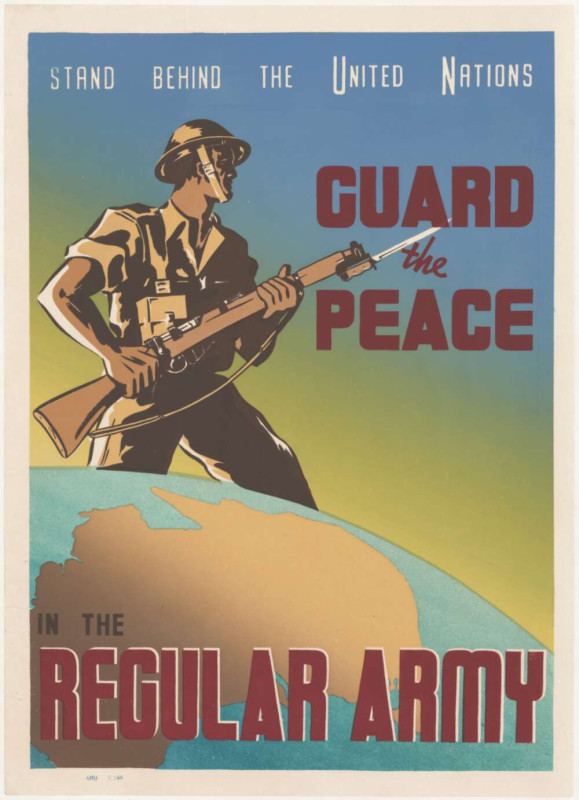Australia's first peacekeeping commitment
14 September 1947
Australia supports peacekeeping operations in Indonesia, honouring our international obligations.
At the end of the Second World War, Indonesian nationalists had declared independence from their Dutch colonisers resulting in a dangerous conflict. Having contributed to the formation of the United Nations, Australia honoured its commitment to global peace by supporting peacekeeping operations in Indonesia from 1947 to 1951. Peacekeepers in Indonesia were responsible for:
- supervising a ceasefire agreement and reporting if the agreement was broken
- assisting with negotiations to settle the conflict
- repatriating – sending back – Dutch forces to the Netherlands.
The peacekeeping operation eventually led to the end of the conflict and Indonesia’s independence. Australia’s role on the international stage was shifting as Australia took on a more active and independent role in international affairs, particularly in the Pacific and Asian regions.
Peacekeeping continues to be a commitment of the Australian Government – Australia has continually been involved in peacekeeping operations around the world since this first mission in 1947. Australia also continues to contribute to the work of United Nations bodies and provide financial support to the organisation.

‘Stand behind the United Nations : guard the peace : in the regular army’
National Library of Australia
‘Stand behind the United Nations : guard the peace : in the regular army’

National Library of Australia
Description
This poster was produced to encourage enlistment in the army to support the United Nations peacekeeping operations. Australia’s first peacekeeping commitment was in Indonesia in 1947, however this poster was more likely to have been produced in the 1950s during the Korean War.